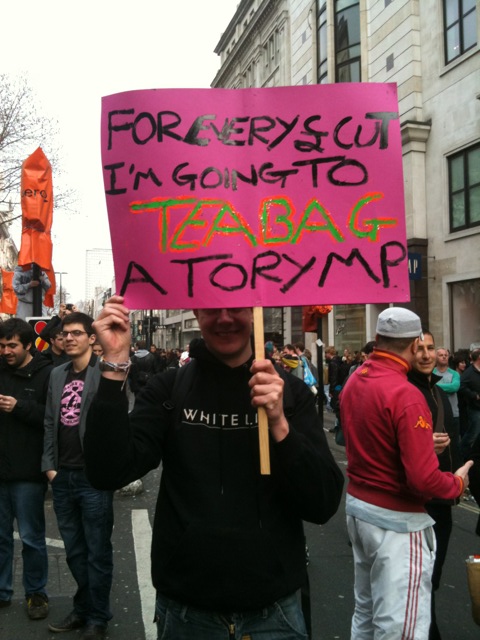I would guess he rightly judges Labour’s position, which is that the last thing they want at this point is political power. The Blairites are convinced that they would have to implement the same cuts as the Tories are doing, (ex-chairman Peter Watts has even bizarrely claimed that opposing cuts is hurting Labour), and that it would be much easier to allow them to get on with it. The Labour soft left doesn’t yet have a coherent alternative, or at least not one they’re able to articulate or willing to fight for. Neither side really wants to re-open an old civil war, though the Right are better placed to wage it if it comes. So, they are sitting it out, passively awaiting the Tory meltdown and their dream ticket in 2015. Their strategy would involve striking the correct poses in the face of catastrophe, while nonetheless doing little to prevent it. (Dan does not say, but we should note, that this has significant consequences for the conduct of the labour movement’s resistance to austerity. If the trade union leadership subordinates its actions to the objective of getting ‘their’ party in government, then that most certainly entails an attempt to keep the lid on militancy).
If that sounds familiar it’s because it’s the exact same strategy as the Democratic Party followed during the Bush era. Over the years I’ve explained that the failure of the Democrats to meaningfully oppose Bush was a feature, not a bug. The party leadership knew that sooner or later the voters would return to them as the only real alternative, once they were sick to death of Republican mismanagement. At the same time the leadership wasn’t too unhappy with what Bush and co were doing anyway, even if their base was. And once the disgust with the Republicans was large enough and the Democrats did have a charismatic presidential candidate their strategy was validated – they got their cake and ate it too. And in the meantime they dissipated a lot of the grassroots militancy that sprung up in the wake of the War on Iraq and the like.
Whether or not Labour is consciously following the same strategy, or is just too divided at the moment to meaningfully oppose the coalition doesn’t really matter. The fact of the matter is that Labour too has shown itself not to be trusted when in power, to no longer be a meaningful leftwing party, if perhaps still slightly better than the LibDems are now. Bringing them back into government won’t solve anything, unless Labour is returned to its roots as a true socialist party.
